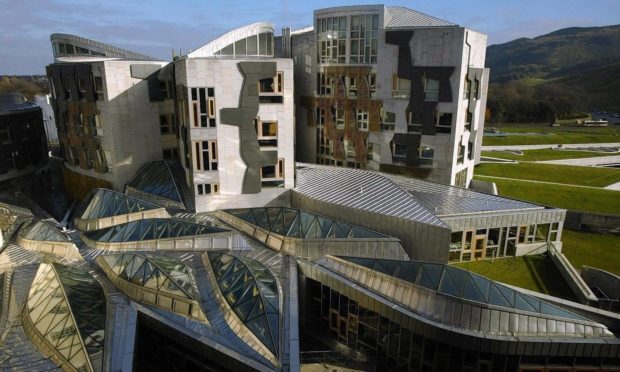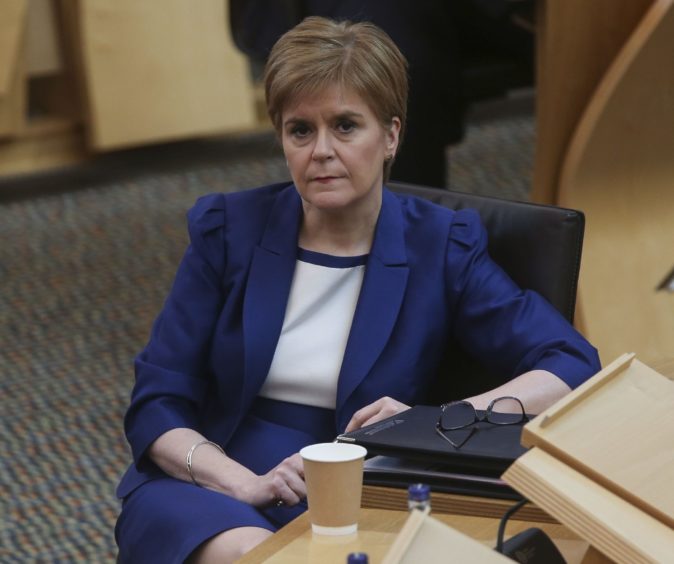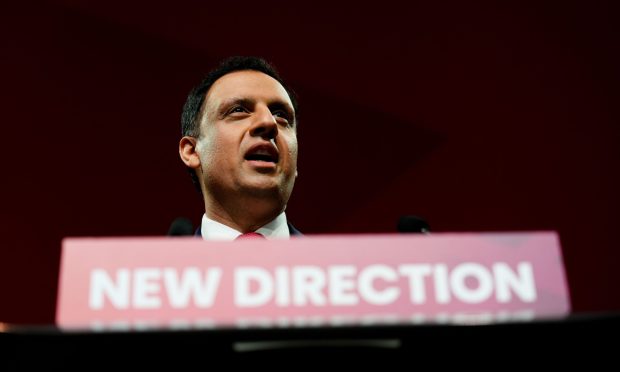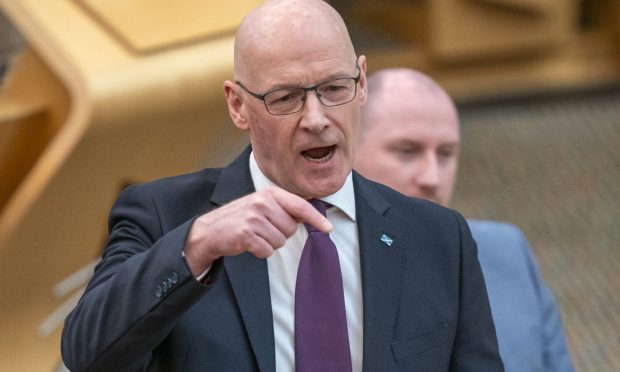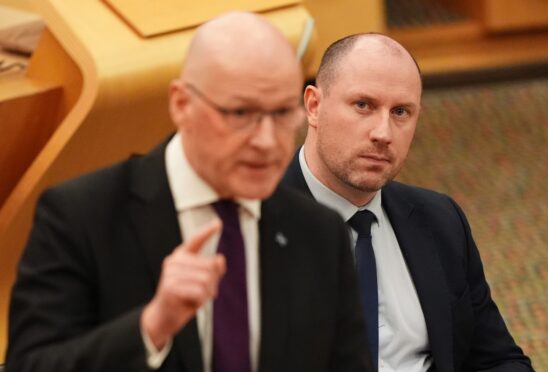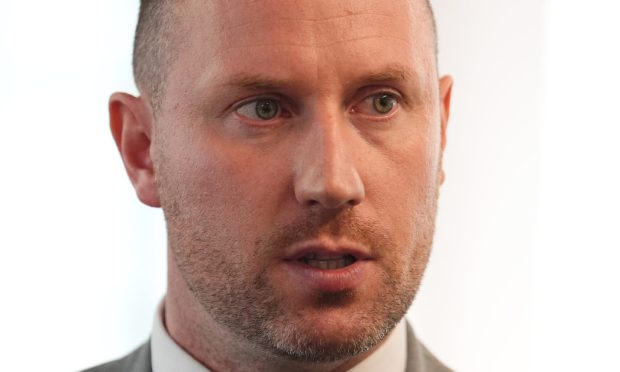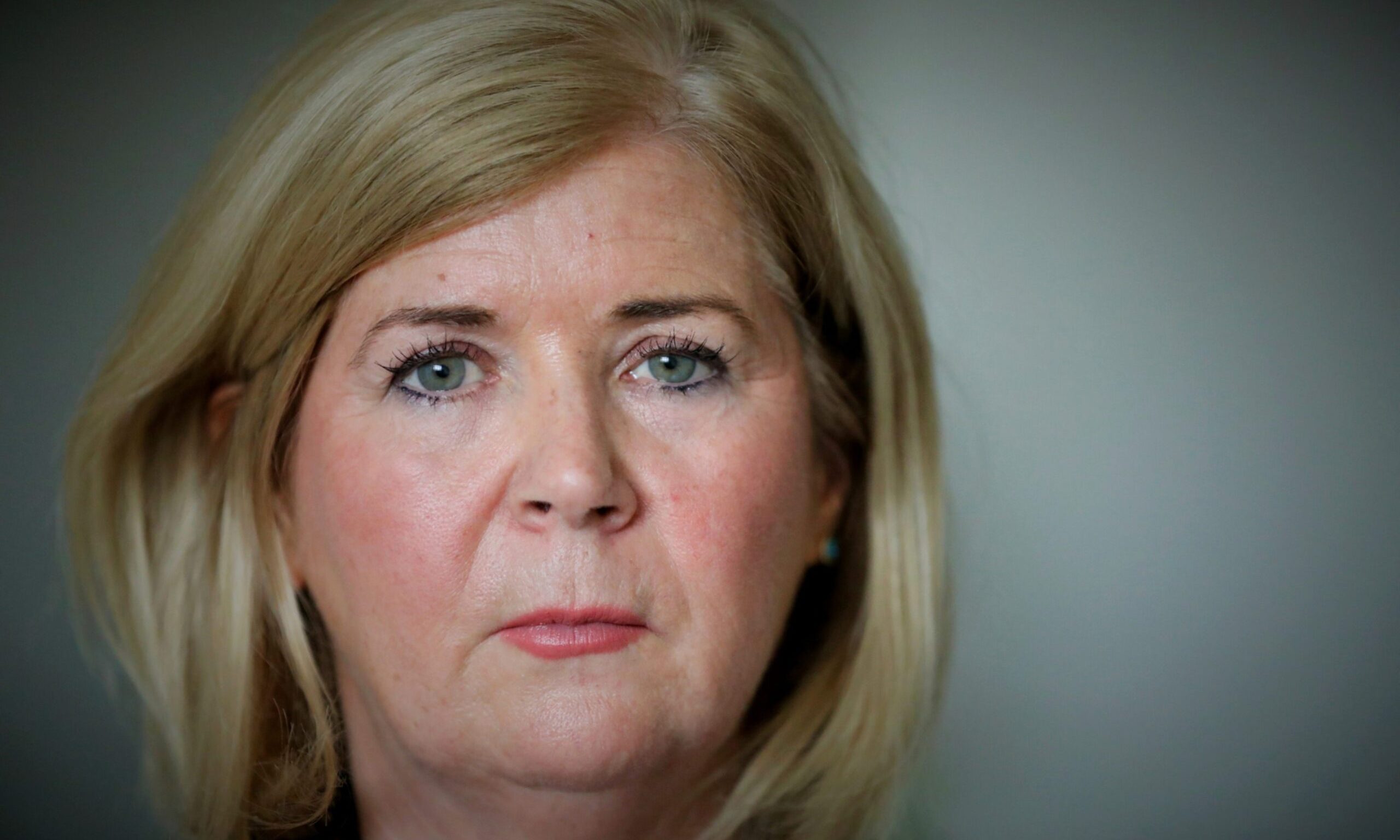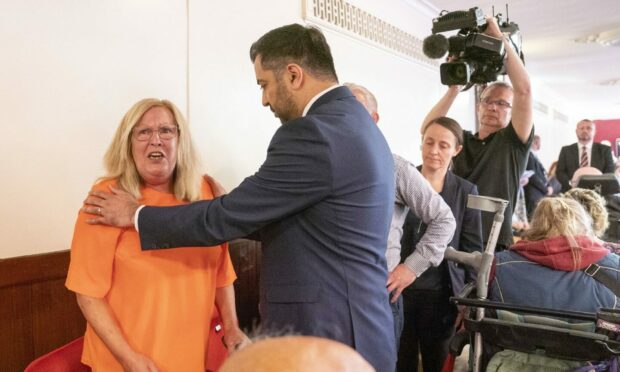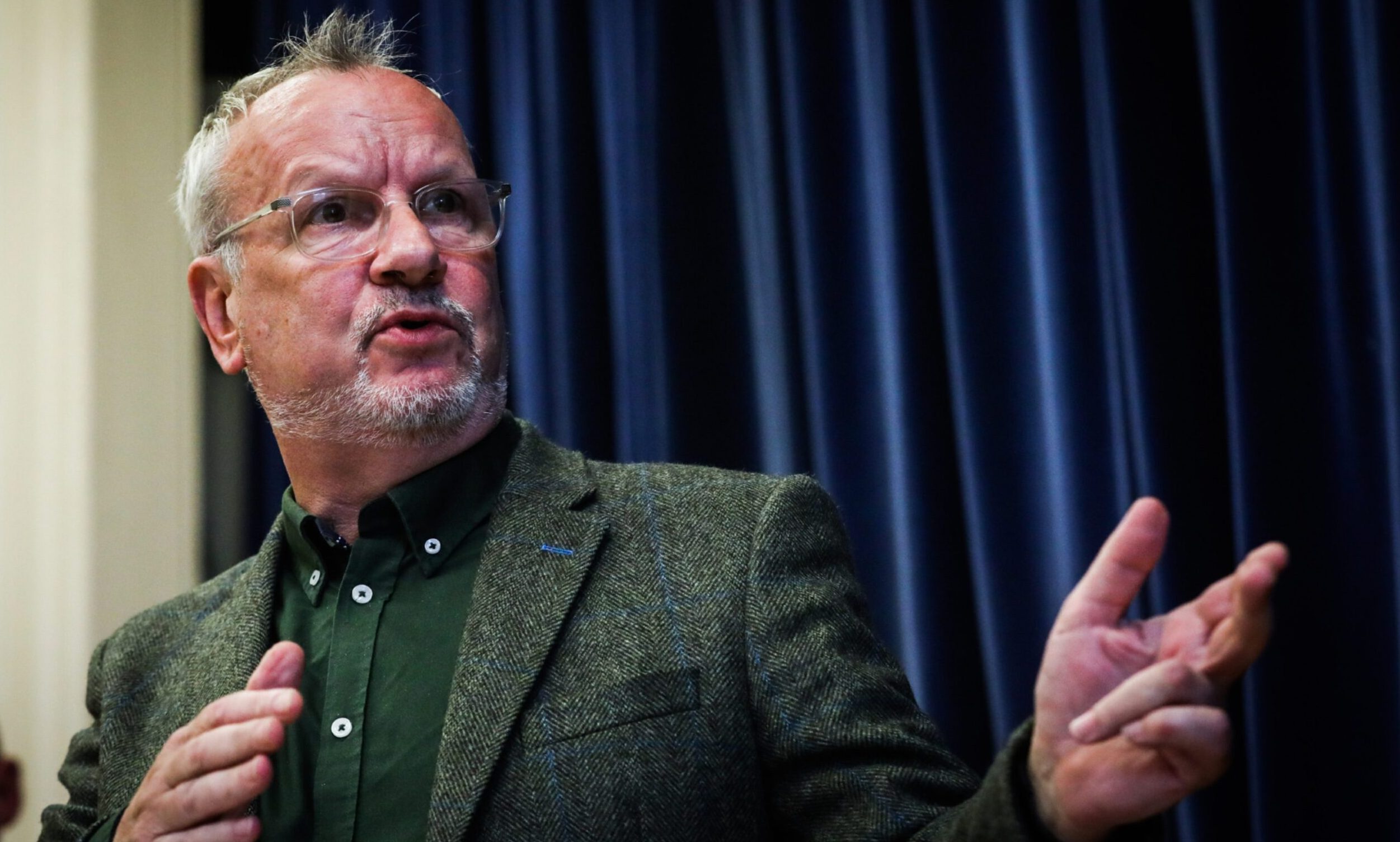Perhaps it was brave of Nicola Sturgeon to announce new powers to fine firms who fail to enforce social distancing measures on the day Holyrood got back to business.
Would MSPs be able to follow the coronavirus guidelines as they returned to the Scottish Parliament for the first time since the Easter break?
The Holyrood authorities warned those returning to the building at the foot of Edinburgh’s Royal Mile that the two-metre gap must be scrupulously observed.
Efforts were made to slim down the body politic to make it easier for politicians to stay apart. Fifty seats were removed from the debating chamber and only 79 parliamentarians were allowed in at one time.
The parties were asked to stagger MSPs’ arrival to, and departure from, the chamber and arrangements were in place to allow voting to take place at a safe distance.
Takeaway meals were the order of the day at the parliamentary canteen. The posh restaurant was closed, as was the bar – a sensible move. Imagine the outcry if MSPs were able to go to the pub when everyone else is doing without.
With the coronavirus reducing Holyrood sittings to one a week, there was plenty of business to be done, all of which was of a very serious nature.
Given the mounting death toll, it was perhaps unsurprising that emotion was never far from the surface. Labour’s Jackie Baillie was visibly upset when she raised the case of Crosslet Nursing Home, where there had been 16 deaths in the last month.
After Health Secretary Jeane Freeman had made the first of three ministerial statements to parliament, Ms Baillie claimed West Dunbartonshire Council had given “the impression to families” that residents had been tested when they had not.
Ms Freeman described the situation as “shameful and unacceptable” as she agreed to Ms Baillie’s request for an urgent investigation.
Early release of prisoners announced by Justice Secretary
The next cabinet secretary in the spotlight was Humza Yousaf. And it was during the Justice Secretary’s statement to Holyrood that journalists covering the parliament remotely ran into difficulties, as the online TV coverage of the day’s business became extremely erratic.
Would love to tell you about Scottish Govt's plans to release some prisoners early but my @ScotParl video feed went down at the crucial moment@ScotGov say they can't publish the speech yet as the person checking against delivery had the same problem
😱
— Chris Green (@ChrisGreenNews) April 21, 2020
But there was enough of the spluttering Scottish Parliament TV feed to discern that Mr Yousaf was making a very significant announcement about the early release of prisoners.
Mr Yousaf had asked the Scottish Prison Service to consider releasing convicts in the last three months of their sentence in order to help jails cope with the spread of the coronavirus.
Only those who were sent to jail for less than 18 months would be eligible, but there was consternation about the move, which could result in up to 450 inmates being freed early.
Earlier in the day the Scottish Government’s chief economist, Gary Gillespie, had produced a report predicting coronavirus would contribute to Scottish growth being slashed by a third.
So perhaps Economy Secretary Fiona Hyslop was stating the obvious when she warned that recovery would be slow during her statement – the third and last of the day.
Announcing £2,000 grants for the self-employed, Ms Hyslop then moved over for what is normally the highlight of the parliamentary week.
First Minister’s Questions was held at the unusual time of 4.30pm on a Tuesday instead of noon on a Thursday.
Despite the unusual scheduling, the line of questioning was familiar as the opposition leaders focused on the recurring – but absolutely vital – themes of the coronavirus pandemic.
Jackson Carlaw of the Conservatives highlighted PPE shortages on the frontline of the fight against the virus, asking Ms Sturgeon to give facts and figures on equipment distribution and supply. The first minister replied that the numbers were always changing but there were, for example, one to two weeks’ worth of aprons and 12 weeks of gloves.
Sensitive to complaints from carers and other frontline staff that they are not getting the equipment, Ms Sturgeon said National Services Scotland was working “every minute of the day” to get supplies.
Labour’s Richard Leonard raised the distressing case of a woman who had been asked by a GP to sign a “Do Not Resuscitate” form on behalf of her 70-year-old husband suffering from dementia.
Ms Sturgeon replied that such forms should not be issued without “sensitive discussion” before she was challenged over a lack of coronavirus testing by Green co-convener Patrick Harvie.
Finally, it was up to Lib Dem leader Willie Rennie to call for frontline NHS and care workers to be given an extra £29 a day. Mr Rennie pointed out that this is what was paid to members of the Armed services on assignment in “demanding conflicts”.
Ms Sturgeon said she would consider his suggestion. It may be an exaggeration to compare the coronavirus crisis to a warzone, but goodness knows our frontline staff deserve it.
